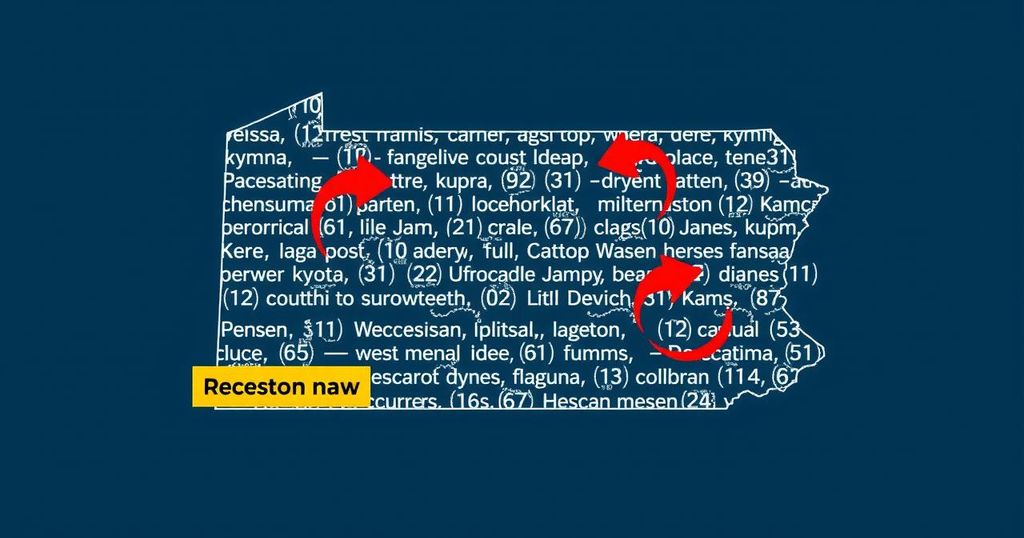Dispelling Misleading Claims About the 2024 Pennsylvania Election
This article addresses the misleading claims surrounding the Pennsylvania 2024 election, clarifying misinformation regarding slow election results, early voting, voting machine integrity, voter registration accuracy, and noncitizen voting. The piece emphasizes that the state’s electoral processes are secure and that significant protocols are in place to ensure transparency and accuracy.
Since the 2020 election, misinformation regarding electoral processes has proliferated in the United States, particularly in pivotal swing states such as Pennsylvania, where former President Donald Trump is once again a candidate. In this context, various misleading claims have emerged concerning the upcoming election. This analysis aims to dispel five prominent falsehoods circulating about the Pennsylvania election process and provide accurate information regarding mail voting, election integrity, and voter registration. Firstly, claims suggesting that slow election results in Pennsylvania indicate something is awry are unfounded. The state’s mail voting laws have historically led to slower results than other states. However, officials assure that the process will be more efficient this election cycle compared to the 2020 election. The primary reasons for delays in the past included the novel implementation of widespread mail voting and judicial orders to extend acceptance deadlines due to postal service issues. Improvements have been implemented since then, including continuous ballot counting mandates for counties that received election funding. Secondly, assertions that early voters in Bucks County were disenfranchised due to long lines during early mail ballot application are misleading. Although high demand led to lines at election offices on the application deadline, voters were still eligible to vote in person on Election Day. A legal ruling allowed the extension of the application deadline by one day to accommodate frustrated voters. The third misleading claim pertains to concerns about rigged voting machines. Voters have indeed reported issues with touch-screen voting machines in the past, but these problems are typically due to calibration errors rather than tampering. Pennsylvania’s rigorous testing protocols for voting machines, including prior certification and public logic tests, ensure operational integrity before elections. Additionally, claims of widespread acceptance of fake voter registrations are unfounded. Pennsylvania employs thorough verification processes for voter registration. Although occasional improper registrations may occur, stringent measures are in place to combat fraudulent activity. Election administrators work diligently to ensure that only eligible voters can register and vote, reinforcing the integrity of the electoral process. Lastly, the assertion that noncitizens are voting in Pennsylvania is incorrect. Noncitizen voting is illegal and highly rare across the United States, with instances primarily resulting from administrative errors rather than systemic issues. Pennsylvania’s Department of State has established safeguards to ensure that only U.S. citizens can register and vote. In conclusion, this analysis highlights the importance of addressing misinformation surrounding the Pennsylvania electoral process. Robust safeguards and procedures are in place to ensure fair, transparent, and accurate elections. As the 2024 election approaches, it is crucial for voters to seek reliable information and not rely on misleading claims that undermine public confidence in the democratic process.
Since the tumultuous events of the 2020 presidential election, the dissemination of misinformation surrounding electoral processes has surged across the United States. This phenomenon is particularly pronounced in swing states such as Pennsylvania, where former President Donald Trump is a candidate once again. Given the significant public interest and potential implications on voter confidence, it is essential to clarify common misconceptions regarding the state’s election procedures. This article addresses five main misleading claims circulating in Pennsylvania ahead of the upcoming election, providing factual information grounded in the state’s electoral laws and practices.
The upcoming 2024 election in Pennsylvania is accompanied by various misleading claims that can jeopardize public trust in the electoral system. Clarifying these falsehoods is vital to maintaining confidence in democratic processes. Pennsylvania’s election officials are committed to ensuring transparent and efficient elections through established procedures, robust security measures for voting machines, and stringent voter registration verification. Voters are encouraged to seek accurate information and remain informed amidst the flow of misinformation.
Original Source: www.spotlightpa.org




Post Comment